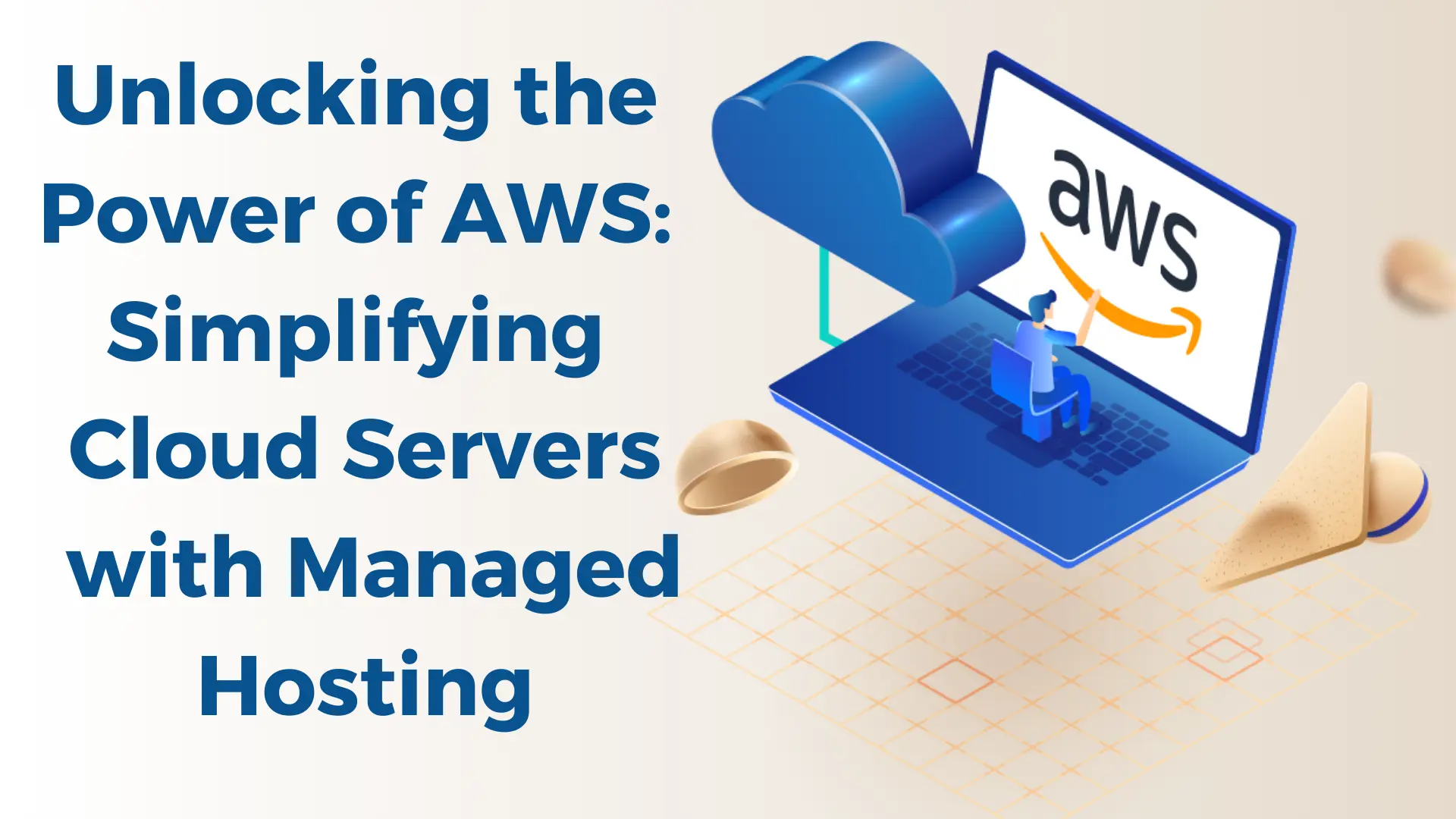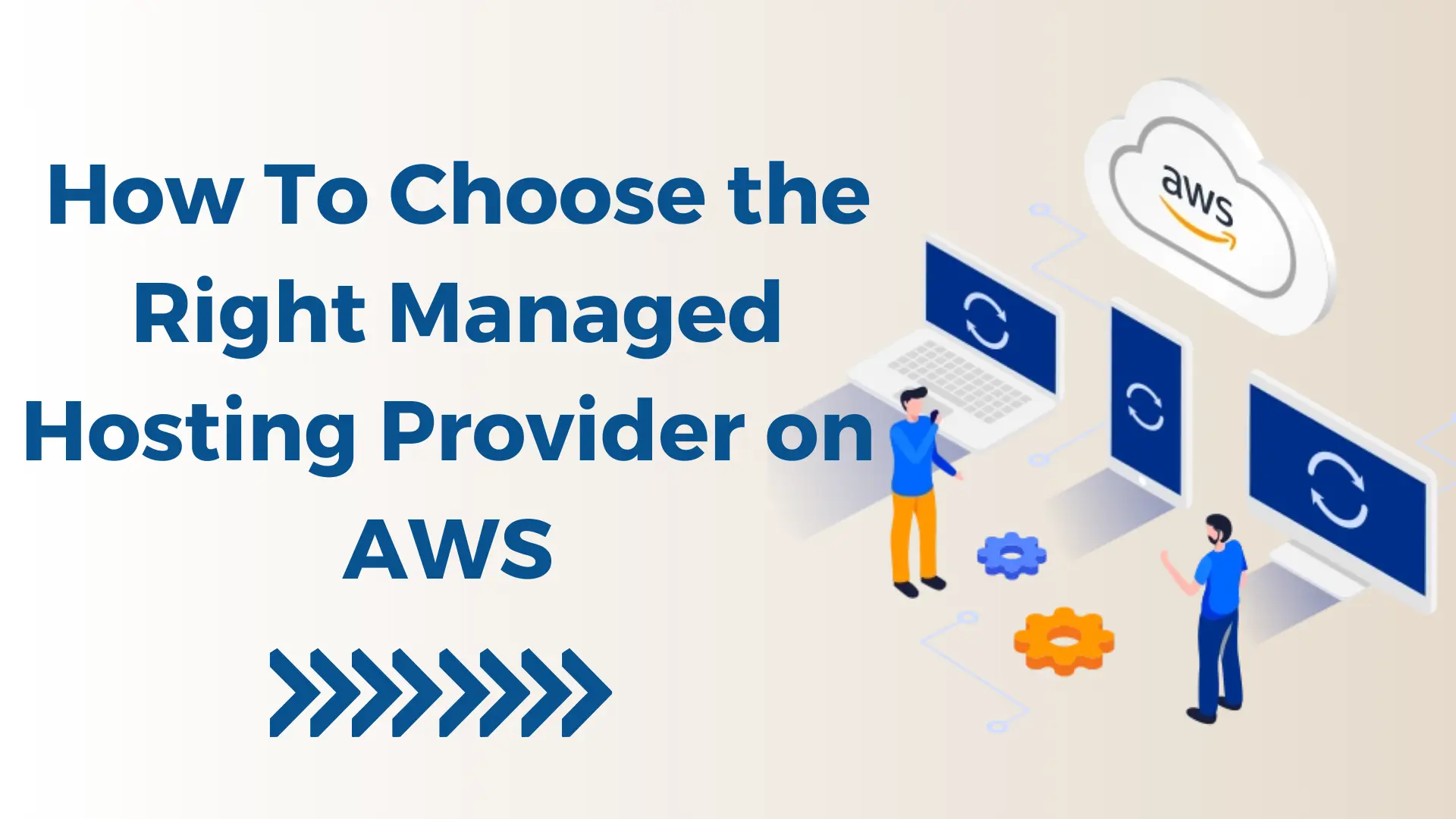
The digital age has propelled many businesses into the cloud. The day-by-day increasing need of businesses for cloud technology has evolved over the past few years.
To serve this huge need, many top players have been operating in the market to fulfill those demands. One of the leading services among them is AWS (Amazon Web Services).
According to Statista, Amazon Web Services had 32 percent of the entire market share alone in 2022, followed by others.
In this article, we will look into the benefits of using Amazon Web Services for your business & how choosing the right partner to manage AWS can help in the growth of your business.
But first, let’s understand what cloud computing is.
What is Cloud Computing?
Cloud computing is a simplified way to access computing resources including applications, servers, data storage, development tools, networking capabilities, and much more that is hosted at a remote data center and is managed by a cloud service provider (CSP).
These resources are accessed via the Internet and can be reduced and increased based on one’s need for them.
Compared to traditional on-premises IT, you have an on-demand pay-as-you-go model where you are not buying any physical product. Instead, you’re renting digital resources.
Read more, Cloud Hosting Vs VPS Hosting Vs Dedicated Hosting Which Is Best For Your Business Website
What is Amazon Web Services (AWS)
Amazon Web Services, commonly known as AWS, started operating in 2002 with its e-commerce architecture. Later on, it started giving IaaS (Infrastructure as a Service) in 2006.
They became the first company to give a pay-as-you-go model so that you only pay when you scale in cloud infrastructure.
There are more than 200 services that Amazon Web Services offers today. Some include computing, databases, infrastructure management, application development, and security.
AWS is more than just a cloud service; it is a toolbox with many tools designed for a number of tasks.
For hosting web applications, AWS offers a lot. EC2 helps with the setup of Virtua servers, Elastic Beanstalk takes the hassle out of deploying and adjusting the web applications and Lamada is great for running applications without a dedicated server.
In big data and analytics, AWS outshines as compared to others. With EMR, users can handle frameworks like Apache Spark, and S# for storing and fetching a massive amount of data. Redshift, on the other side, handles data warehousing and ensures data is stored efficiently. For Businesses concerned about data recovery, AWS provides robust data backup and recovery solutions. They couple up with tools that help plan for potential disasters. Additionally, AWS offers features via which you can run applications across multiple zones, boosting availability and reducing fault risks.
AWS further, offers CodeCommit for managing code bits, CodeBuild for integrating and deploying codes continuously, and CodePipeline which ensures the smooth & continuous delivery of codes.
For IoT, AWS offers IoT core, a service perfect for connecting devices to the cloud. They also have IoT analytics for breaking down IoT data and Greengrass lets users run their OpT applications closer to where the data is created.
Advantages of Using AWS
- Budget-Friendly Solutions –
AWS operates on a model where you’re charged only for what you consume, this ensures that both small startups and large organizations can efficiently manage their expenditure and maintain their finances well. Approaching this way allows organizations to eliminate hefty upfront costs and thus business can allocate their funds more effectively.
- Adaptable Resources
This is one of AWS’s standout features, letting businesses seamlessly adjust their resources based on the present demand. Whether there’s an unexpected boost in traffic or you need to downscale, AWS flexibility is tailored for enterprises of every scale.
- Global Accessibility
Amazon Web Services has a vast network of data centers around the globe, they guarantee quick access to their services, no matter from which location you are accessing the service. This widespread coverage amplifies the user experience and ensures consistent global outreach.
- Data Protection
Safety is one of the most important aspects of AWS adhering to top-tier security protocols, it ensures that user data remains confidential and shielded. With its compliance with several industry-recognized certifications, it’s evident that AWS prioritizes the security and integrity of its user data.
How To Choose the Right Managed Hosting Provider on AWS

When transitioning to AWS or optimizing your current AWS usage, selecting the right managed hosting provider can make all the difference. A suitable provider can elevate your business operations, ensuring smooth, efficient, and secure cloud experiences. To help with this selection, here are some considerations and questions you should keep in mind & can consider when choosing the right managed hosting provider.
1. Support Availability
Not all providers offer 24/7 support, and yet, in a global marketplace, it’s vital. Downtime or unresolved issues can have significant implications, especially if they occur outside regular working hours.
Read more, Why Managed VPS Hosting is the Smart Choice for Growing Businesses
Question to Ask: “What are your support hours? Is there 24/7 emergency assistance available?”
2. Expertise and Experience
AWS offers a lot of services and is evolving day by day. The right provider should have a team that’s adept with the latest AWS offerings and how to leverage them for your specific needs.
Question to Ask: “How often does your team undergo Amazon Web Services training? Can you provide case studies or examples of similar businesses you’ve assisted?”
3. Additional Services
Beyond basic hosting, many providers offer value-added services like performance optimization, security assessments, or even AWS-specific consultancy. These can be invaluable, especially for businesses that lack in-house Amazon Web Services expertise.
Question to Ask: “Beyond hosting, what additional AWS-related services do you provide?”
4. Service Level Agreement (SLA) Standards
An SLA outlines the level of service you can expect. It will detail uptime guarantees, response times for issues, and potential compensation for service lapses.
Question to Ask: “Can I review your Service Level Agreement? What is your uptime guarantee and compensation structure for any potential breaches?”
5. Customization and Scalability
As your business grows, your AWS needs might change. The ideal provider should offer flexibility in their packages, allowing you to scale services or adjust features as necessary.
Read more, Steps To Improve Site Security and Mitigate Cyber Threats
Question to Ask: “How easy is it to scale services with your hosting? Are there any penalties or additional fees for adjusting our package?”
Conclusion
Today choosing a cloud service has become a necessity for businesses & hence picking the right service provider becomes a mandate. The key to truly unlocking AWS’s potential lies not just in leveraging its offering but in partnering with the right managed hosting provider who understands your business needs and can align AWS’s capabilities to them.
Therefore, we at Cloudminister solves all these issues and answers all these questions for you to select us as one of your go-to Managed hosting provider of Amazon web services. We provide service for your applications in any region with 24*7 customer assistance available.
 Register
Register
